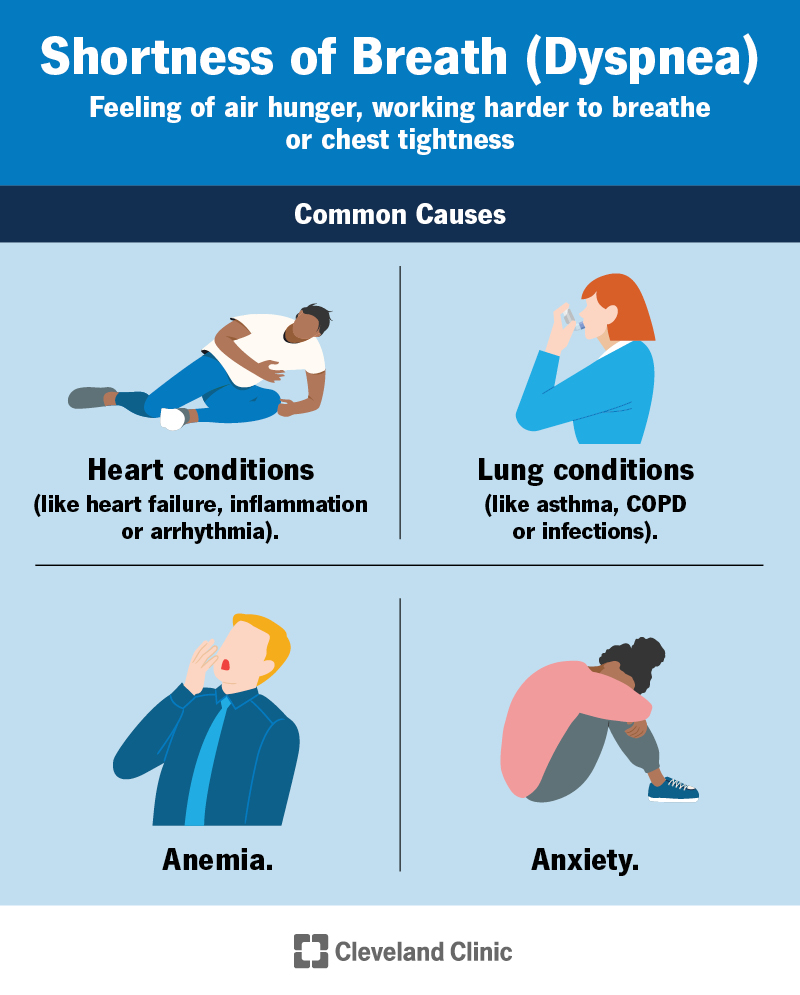欧博Dyspnea (Shortness of Breath): Causes, Symptoms
Overview
What is dyspnea (shortness of breath)?
Dyspnea (pronounced “DISP-nee-uh”) is the word healthcare providers use for feeling short of breath. You might describe it as not being able to get enough air (“air hunger”), chest tightness or working harder to breathe.
Advertisement
Cleveland Clinic is a non-profit academic medical center. Advertising on our site helps support our mission. We do not endorse non-Cleveland Clinic products or services. Policy
Shortness of breath is often a symptom of heart and lung problems. But it can also be a sign of other conditions like asthma, allergies or anxiety. Intense exercise or having a cold can also make you feel breathless.
What are paroxysmal nocturnal dyspnea (PND) and sighing dyspnea?Paroxysmal nocturnal dyspnea (PND) is a feeling like you can’t breathe an hour or two after falling asleep. Sighing dyspnea is when you sigh a lot after taking deep breaths in to try to relieve the feeling of dyspnea.
What is the difference between dyspnea and shortness of breath?Dyspnea and shortness of breath are the same. Dyspnea is the medical term for the feeling of not being able to get enough air.
What are acute and chronic dyspnea?Acute and chronic dyspnea differ in how quickly they start and how long they last. They have different causes.
Acute dyspneaAcute dyspnea can come on quickly and doesn’t last very long (hours to days). Allergies, anxiety, exercise and illness (like the common cold or the flu) can cause acute dyspnea. More serious conditions, like a heart attack, sudden airway narrowing (anaphylaxis) or blood clot (pulmonary embolism) can also cause acute dyspnea.
Chronic dyspneaChronic dyspnea is shortness of breath that lasts a long time (several weeks or longer) or keeps coming back. Ongoing health conditions like asthma, heart failure and COPD can cause chronic dyspnea. Not getting enough exercise can also make you feel breathless all the time because your muscles are trying to get more oxygen.
Advertisement
Who gets dyspnea?As it has so many causes, shortness of breath is very common. But you might be more likely to get short of breath if you don’t get enough exercise or have:
What are the signs of dyspnea?Shortness of breath can feel different from person to person and depending on what’s causing it. Sometimes, it comes with other symptoms.
Some signs of dyspnea include:
